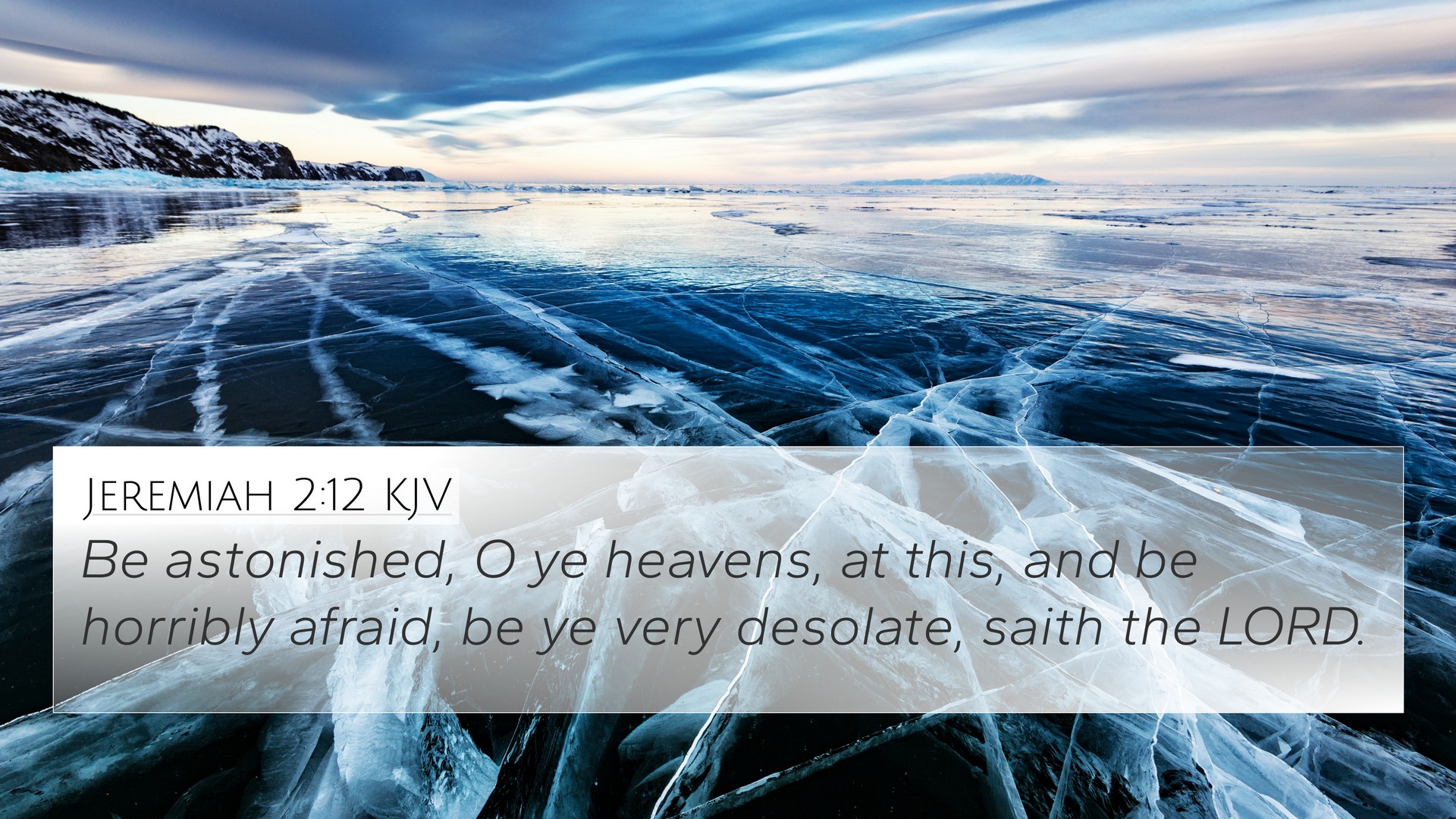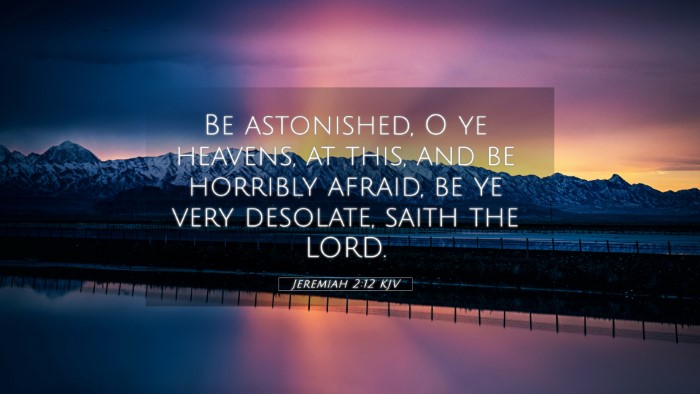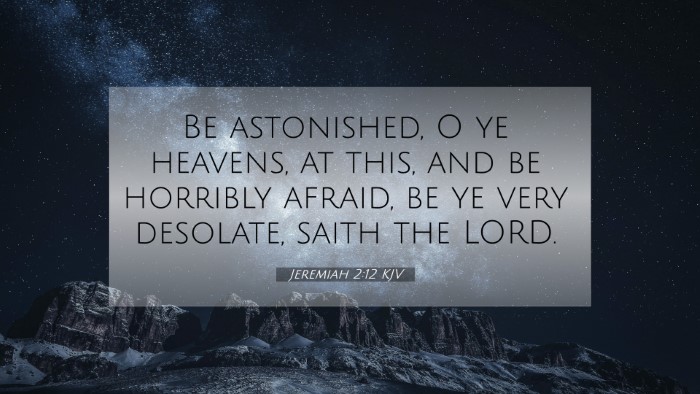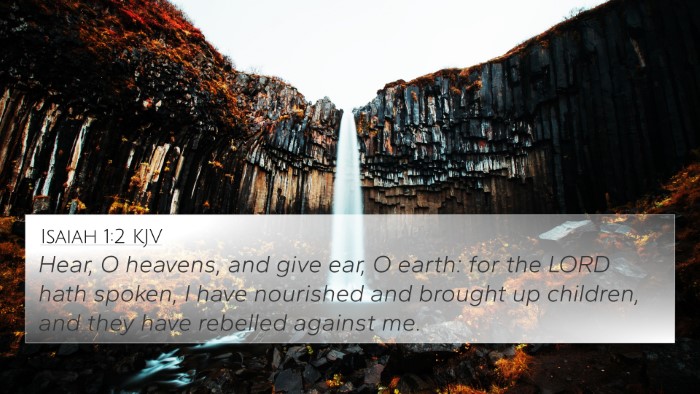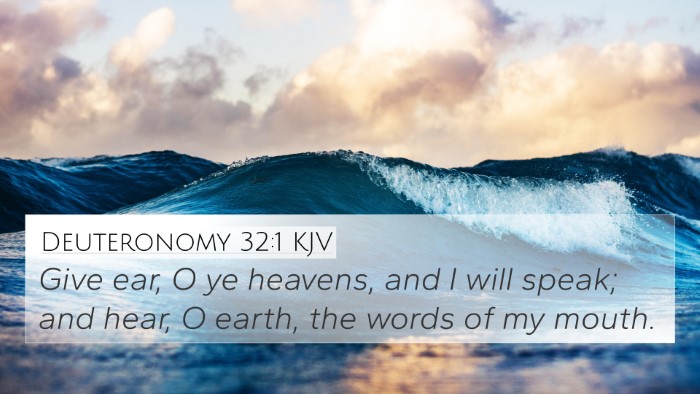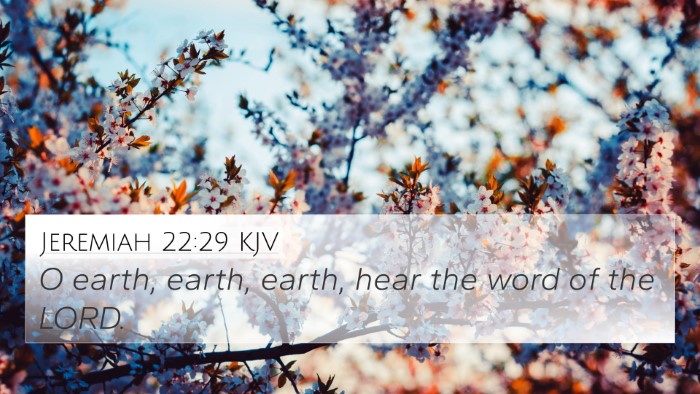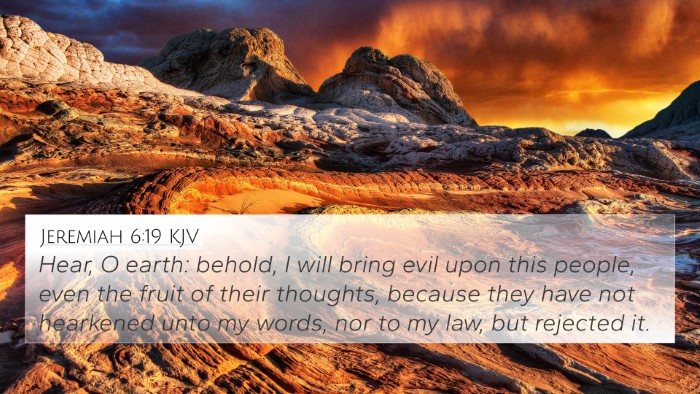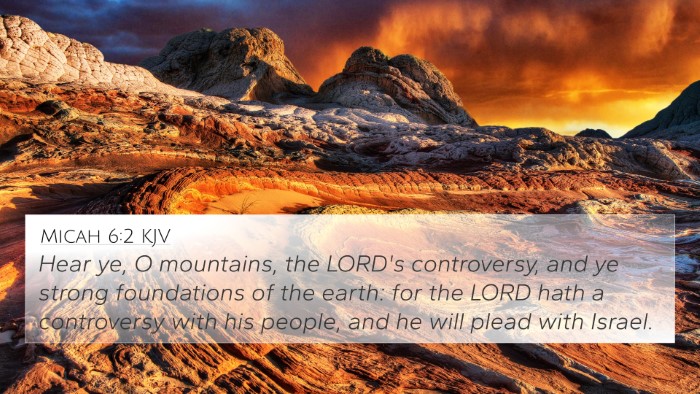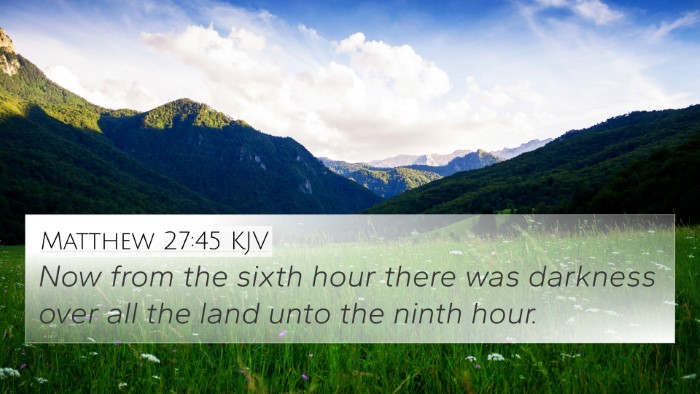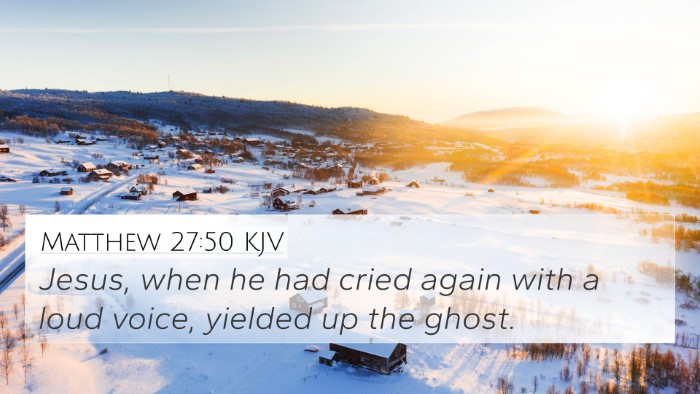Understanding Jeremiah 2:12
Jeremiah 2:12 states, "Be astonished, O heavens, at this, and be horribly afraid; be very desolate, saith the LORD." This powerful verse conveys profound emotion and the gravity of Israel's actions against God. Below, we explore the meaning and implications of this verse using insights from various public domain commentaries.
Insights from Public Domain Commentaries
Matthew Henry's Commentary
Matthew Henry emphasizes the astonishment that heaven itself should feel regarding Israel's rebellion. He points out that such sin is so grievous that it should provoke divine judgment. The term "horribly afraid" is a call for reflection on the seriousness of turning away from God, highlighting the deep fracture in Israel's relationship with their Creator.
Albert Barnes' Commentary
Albert Barnes notes that God invites the heavens to witness the transgressions of His people. He mentions that this expression illustrates how far Israel has strayed, attributing their unfaithfulness to a lack of fear and reverence for God. The phrase "be very desolate" indicates the extent to which God’s displeasure affects both Israel and the created order.
Adam Clarke's Commentary
Adam Clarke elaborates on the metaphor of heaven being astonished, asserting that the cosmos reacts when the covenant people choose sin over faithfulness. He describes the invocation as an appeal to God's entire creation to recognize the fault of His people. This reaction is significant as it reflects God's universal sovereignty and the impact of human sin on the entirety of creation.
Cross-References Related to Jeremiah 2:12
- Isaiah 1:2 - "Hear, O heavens, and give ear, O earth: for the LORD hath spoken..." - A call to creation to witness Israel's rebellion.
- Deuteronomy 32:1 - "Give ear, O ye heavens, and I will speak..." - Similar theme of calling upon heavens to bear witness to divine warnings.
- Luke 19:40 - "...if these should hold their peace, the stones would immediately cry out." - The concept that creation responds to the actions of humankind.
- Romans 8:22 - "For we know that the whole creation groaneth and travaileth in pain together until now." - Reflecting the connection between human sin and the suffering of creation.
- Jeremiah 4:23-26 - A description of desolation linked to the people's disobedience.
- Psalm 90:7 - "For we are consumed by thine anger, and by thy wrath are we troubled." - God's anger towards rebellion has cosmic consequences.
- Revelation 12:12 - "Therefore rejoice, ye heavens, and ye that dwell in them..." - The idea that heaven reacts to earthly events.
- Micah 6:1 - "Hear ye now what the LORD saith; Arise, contend thou before the mountains, and let the hills hear thy voice." - Again calling the earth to witness God's case against Israel.
- Ezekiel 18:30 - "Therefore I will judge you, O house of Israel, every one according to his ways." - God’s righteousness in judging His people.
- Hosea 4:1 - "Hear the word of the LORD, ye children of Israel: for the LORD hath a controversy with the inhabitants of the land..." - God’s plea regarding the people's sins.
Thematic Connections
This verse not only addresses the immediate context of Israel's desertion of God but also connects to broader Biblical themes of covenant faithfulness, divine judgment, and the response of creation to human actions. The call for the heavens to be astonished serves as a reminder of God's rightful place as Creator and Judge, and the consequential nature of sin.
Conclusion
Jeremiah 2:12 encapsulates a pivotal moment of divine lament over Israel's unfaithfulness, calling on all of creation to recognize the depth of human sin and its repercussions. Through the lens of the referenced commentaries, we gain a multifaceted understanding of both God's character and the seriousness of covenant breach.
